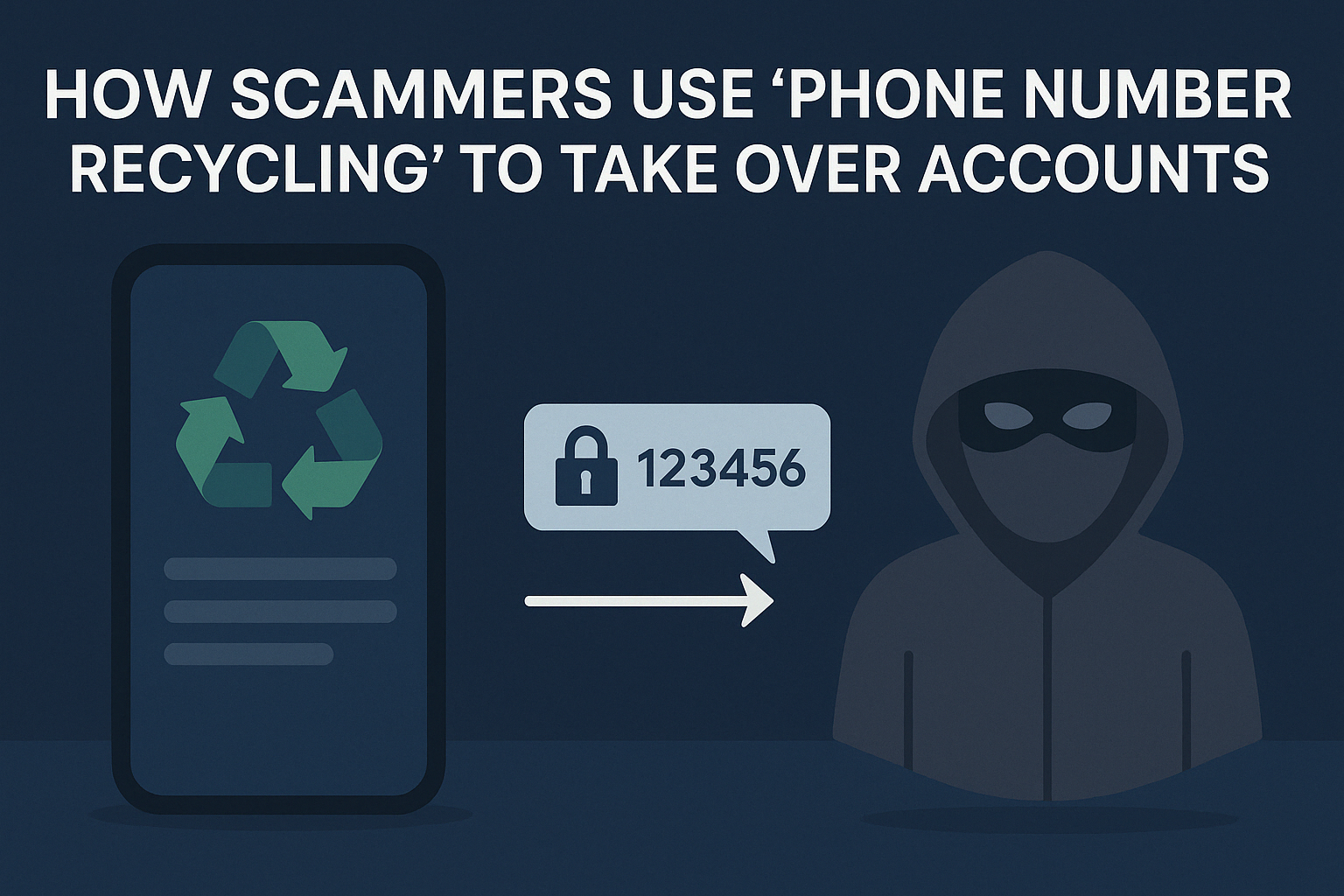Security & Privacy
How Scammers Use “Phone Number Recycling” to Take Over Accounts

Carriers routinely reassign old phone numbers to new subscribers. Unbeknownst to many, this practice can grant attackers access to your messages, one-time codes, and even full control of your accounts. Learn how phone number recycling risks can lead to account takeovers and how to protect yourself.
Introduction
Phone number recycling is the process by which telecom carriers reclaim unused or inactive phone numbers and reassign them to new subscribers. While this helps manage the limited number of available phone combinations, it poses significant security risks when the recycled number remains linked to the previous owner’s online accounts.
In this article, we’ll explore how attackers exploit recycled numbers, share real-life stories of misdirected calls and unauthorized access to accounts, and demonstrate how secondary lines and number masking services like ChatOdyssey Phone Relay can act as a firewall against these threats. ChatOdyssey Phone Relay offers a free trial and then $4.99/month, including unlimited email relay for custom business emails and a free masked phone number.
What Is Number Recycling?
Phone number recycling, also known as number reassignment, is a standard carrier process where disconnected or inactive numbers are returned to the pool of available numbers after a quarantine period. According to research by Lee & Narayanan, carriers like Verizon and T-Mobile recycle millions of numbers each year, often without adequate notification to prior owners. ([collaborate.princeton.edu](https://collaborate.princeton.edu/en/publications/security-and-privacy-risks-of-number-recycling-at-mobile-carriers?utm_source=chatgpt.com))
Stories of Misdelivered Messages and 2FA Codes
Many new subscribers report receiving texts, calls, and one-time passwords (OTPs) intended for previous owners. Bitdefender documented how threat actors use recycled numbers to harvest personal data and perform phishing attacks. ([bitdefender.com](https://www.bitdefender.com/en-us/blog/hotforsecurity/recycled-phone-numbers-threaten-digital-privacy-and-safety-study-shows?utm_source=chatgpt.com))
UK consumers surveyed by Which? found that 7% experienced nuisance calls and unwanted texts from debt collectors or spam—messages clearly not meant for them. ([which.co.uk](https://www.which.co.uk/news/article/phone-number-recycling-investigation-a9rlC8c0RCVu?utm_source=chatgpt.com))
How Attackers Exploit Recycled Numbers
Attackers can acquire a recycled phone number by signing up for service under a new account. They then use that number to:
- Initiate password resets on email and social media platforms with SMS-based OTPs. ([krebsonsecurity.com](https://krebsonsecurity.com/2021/05/recycle-your-phone-sure-but-maybe-not-your-number/?utm_source=chatgpt.com))
- Receive sensitive notifications—such as banking alerts or medical appointment reminders—directly to their device.
- Phish victims by pretending to be customer support from the original owner’s service providers.
Use of Secondary Numbers as Firewalls
One effective mitigation is to use a secondary line or number masking service, creating a barrier between your real number and online accounts. Below is a comparison of popular secondary number solutions:
| Service | Pricing | Key Features |
|---|---|---|
| Google Voice | Free (personal use) | Voicemail transcription, call forwarding, web interface |
| Hushed | From ~$4.99/month | Disposable numbers, SMS/MMS, international support |
| ChatOdyssey Phone Relay | Free trial; then $4.99/month | End-to-end encrypted call/text relay, unlimited email relay for custom business emails |
Frequently Asked Questions
What is phone number recycling?
Phone number recycling is the carrier process of reassigning inactive or disconnected phone numbers to new subscribers after a quarantine period.
How can recycled numbers lead to account takeovers?
If an old number is still tied to someone’s account recovery settings, the new holder can intercept OTPs or reset links sent via SMS to hijack those accounts.
Can I prevent number recycling risks?
Before changing your number, update all accounts that use SMS verification or backup codes, and consider using an authenticator app instead of SMS 2FA.
What is ChatOdyssey Phone Relay?
ChatOdyssey Phone Relay is a service offering an encrypted masked number for calls and texts, plus unlimited email relay for custom business emails. It includes a free trial and is $4.99/month thereafter.
What should I do if I receive someone else’s messages?
Don’t engage; contact your carrier to request a new number and promptly update all online accounts with your new contact.
Conclusion
Phone number recycling is a practical necessity for carriers, but it carries significant risks for individuals who leave their old numbers linked to online accounts. By understanding the threat and adopting secondary line solutions—especially encrypted services like ChatOdyssey Phone Relay—you can protect your digital identity and prevent account takeovers.
Sources
- Lee & Narayanan, Security and Privacy Risks of Number Recycling at Mobile Carriers
- Bitdefender, Recycled Phone Numbers Threaten Digital Privacy and Safety
- Claburn, Meta says risk of account theft after phone number recycling isn’t its problem to solve
- Which?, Phone Number Recycling Investigation
- Krebs On Security, Recycle Your Phone, Sure, But Maybe Not Your Number
- ChatOdyssey Phone Relay